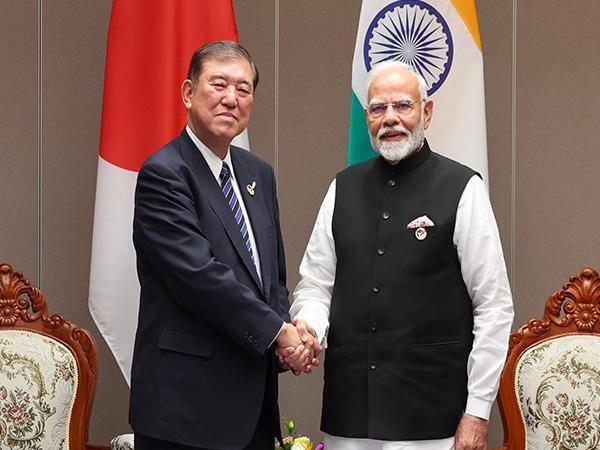
Our Technology & India’s Talent Complement Each Other: Japan PM
In a significant statement, Japan’s Prime Minister Shigeru Ishiba has emphasized the symbiotic relationship between Japan’s advanced technology and India’s outstanding talent, saying that it has led to a dramatic expansion of economic ties between the two nations. This comment was made during his address at the India-Japan Joint Economic Forum with Prime Minister Narendra Modi, where he highlighted the key role Japanese companies are playing in India’s ‘Make in India’ initiative.
The Japan PM’s statement underscores the growing importance of bilateral economic cooperation between India and Japan, which has been gaining momentum in recent years. The relationship between the two countries has been strengthened by a series of high-level exchanges, including the visit of Japanese Prime Minister Fumio Kishida to India in March 2022.
The ‘Make in India’ initiative, launched in 2014 by the Indian government, aims to promote domestic manufacturing and attract foreign investment. The program has gained significant traction, with many global companies, including Japanese firms, setting up shop in India. Japanese companies such as Suzuki, Toshiba, and Hitachi have made significant investments in India, creating jobs and contributing to the country’s economic growth.
The construction of the Mumbai-Ahmedabad High Speed Rail (MAHSR) is a prime example of the collaboration between Japanese companies and India. The project, which is expected to be completed by 2028, is a key component of India’s plan to modernize its rail network. The project has seen Japanese companies such as JGC Corporation and Mitsubishi Heavy Industries playing a key role in its construction.
The Japan PM’s comments also highlight the importance of human resource development in fostering economic cooperation. India has a large pool of skilled and talented professionals, which is a key attraction for foreign investors. Japan, on the other hand, has a reputation for its advanced technology and innovative products. The combination of India’s talent and Japan’s technology has led to the development of unique products and services that cater to both domestic and international markets.
The economic ties between India and Japan have been growing steadily over the years. In 2020, India became Japan’s fifth-largest trading partner, with bilateral trade totaling over $17 billion. The two countries have also signed several agreements to promote trade and investment, including the Japan-India Economic Partnership Agreement (EPA) and the India-Japan Investment Promotion and Protection Agreement (IPPA).
The ‘Act East Policy’ of the Japanese government has also contributed to the strengthening of economic ties between the two countries. The policy aims to promote economic cooperation with countries in Southeast Asia, East Asia, and the Indian Ocean region. India’s strategic location between East Asia and the Middle East makes it an important partner for Japan in its ‘Act East Policy’.
The Japan PM’s comments also underscore the importance of collaboration in the fields of technology and innovation. Japan is known for its cutting-edge technology and innovative products, which have helped the country to maintain its position as one of the world’s leading economies. India, on the other hand, has a large pool of talented professionals in the fields of IT, biotechnology, and pharmaceuticals.
The combination of Japan’s technology and India’s talent has led to the development of unique products and services that cater to both domestic and international markets. For instance, Japanese companies such as Sony and Toshiba have partnered with Indian startups to develop innovative products and services.
In conclusion, the comments made by Japan PM Shigeru Ishiba at the India-Japan Joint Economic Forum highlight the strong potential for economic cooperation between the two countries. The combination of Japan’s advanced technology and India’s outstanding talent provides a unique opportunity for the development of innovative products and services that cater to both domestic and international markets.
As the two countries continue to strengthen their economic ties, there are many opportunities for collaboration in the fields of technology, innovation, and human resource development. The ‘Make in India’ initiative, the construction of the MAHSR, and the ‘Act East Policy’ are just a few examples of the many areas where India and Japan can work together to promote economic growth and development.



